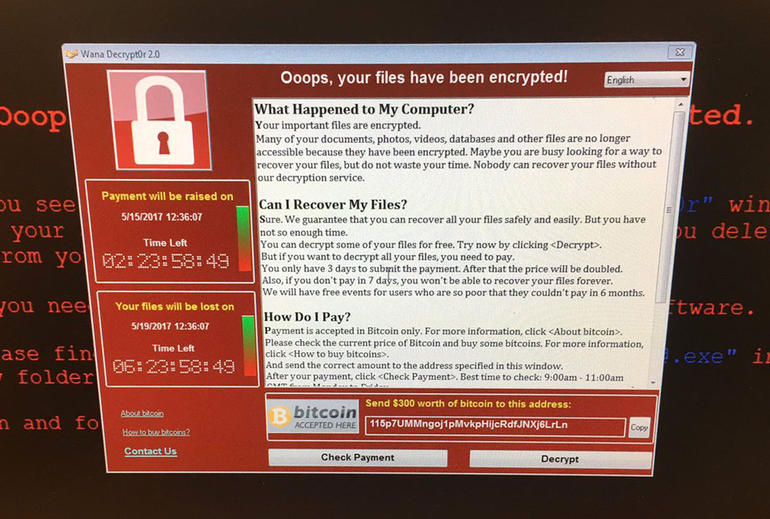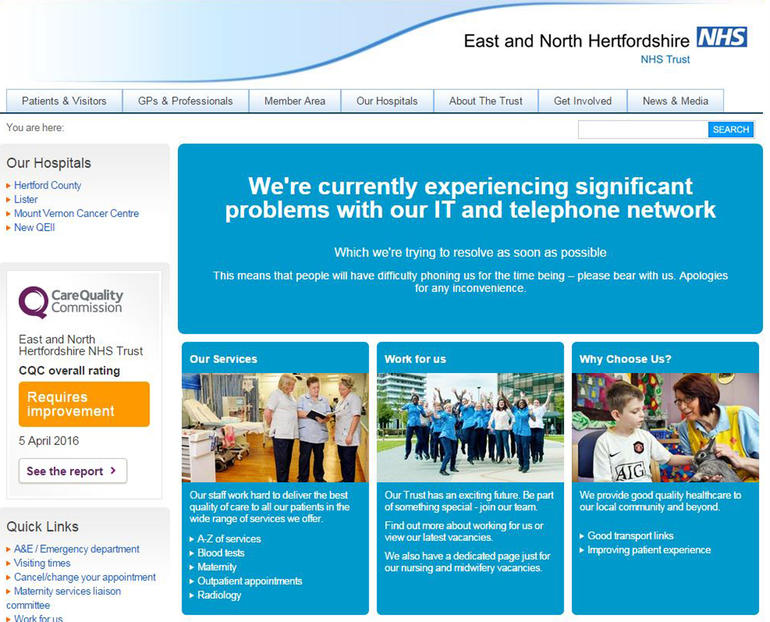Ambulances were diverted and patients were warned to avoid some A&E departments.
NHS Digital said 16 organisations within the health service had seen their IT systems by a ransomware attack, using malware called "Wanna Decryptor".
Christian cyber security expert and author of "The Future of Almost Everything" told Premier more about the attack.
He said:"It's a nuisance but it's not as serious as it would be if 10 million people's medical records had been stolen. There's no evidence of that at the moment.
"What we're talking about is a nuisance attack called ransomware where a virus gets on the machine, it encrypts all the data on the machine so it can't be read.
"It locks up the machine and says if don't you pay me 300 dollars for example you won't be able to access the data".
Pictures posted on social media showed screens of NHS computers with images demanding payment of 300 US dollars worth of the online currency Bitcoin, saying: "Ooops, your files have been encrypted!"
It adds: "Maybe you are looking for a way to recover your files, but do not waste your time."
It demands payment in three days or the price is doubled, and if none is received in seven days the files will be deleted.
Dixon said ransomware hacks are more common that people think. He explained it's happened to Yahoo, the Estonian government and even the U.S. military.
"Lot so individuals get hit by these things every year. What's unusual is to have such a large number of institutional computers, computers owned by the NHS in this case all affected at the same point.
"But if the us military can get hacked then of course the NHS can be as well".
Hospital trusts and GP groups in Lancashire and Hertfordshire were among those reporting problems, with one warning patients to only visit hospital accident and emergency departments "if absolutely necessary".
Blackpool Teaching Hospitals NHS Trust and the resort town's clinical commissioning group (CCG) warned of problems.
The CCG tweeted: "We are aware of an IT issue affecting some GP computer systems.
"Patients are asked for understanding whilst the issue is resolved.
"Please avoid contacting your GP practice unless absolutely necessary. Should you wish to obtain non-urgent medical advice, please call 111.
"Please also only attend the Walk-In Centre and A&E department if absolutely necessary."
Dixon said digital record keeping always comes with the risk of hacks. He commended NHS staff working through the frustrating situation.
He told Premier: "Our thoughts and prayers are with people happy to battle to provide medical services in difficult circumstances.
"Here's the good news, medicine is about being at the bedside. A doctor with the patient making a diagnosis... that kind of stuff can continue.
"The stuff that's been screwed up is when you go to the A&E they can't call up your previous medical records.
"And unfortunately when you try and phone the hospital, that hospital's call centre may also be using computers and they're gone down".
Dixon said most hospitals would likely be resorting to a paper system in the meantime but all hospitals have plans for situation like this.
"Every single hospital should have a disaster procedure, that's what you do when there's been a big power cut, or your IT system has been knocked or your computers have failed," he said.
"Those hospitals should be able to continue, all that's happened is that they continue more slowly and it's a nuisance".
Dixon said billions of spam emails are sent every day leaving people vulnerable to viruses.
He gave advice on how not to be a victim: "Be vigilant; never ever, ever, ever open an attachment with whose name you don't recognise.
"If someone asks for password in an email always be highly suspicious. Be very careful from emails that pretend to be from your bank, they're probably not.
"Always back up your data. Keep it safe then it really doesn't matter if you're hacked.
"Even if your system is closed down, what's the worst thing you do? You take it to the computer shop, they'll reformat it, re-set, rebuild all your data, probably take less than an hour."
An NHS Digital spokesman said the attack was not specifically targeted at the NHS and is infecting other organisations from other sectors.






